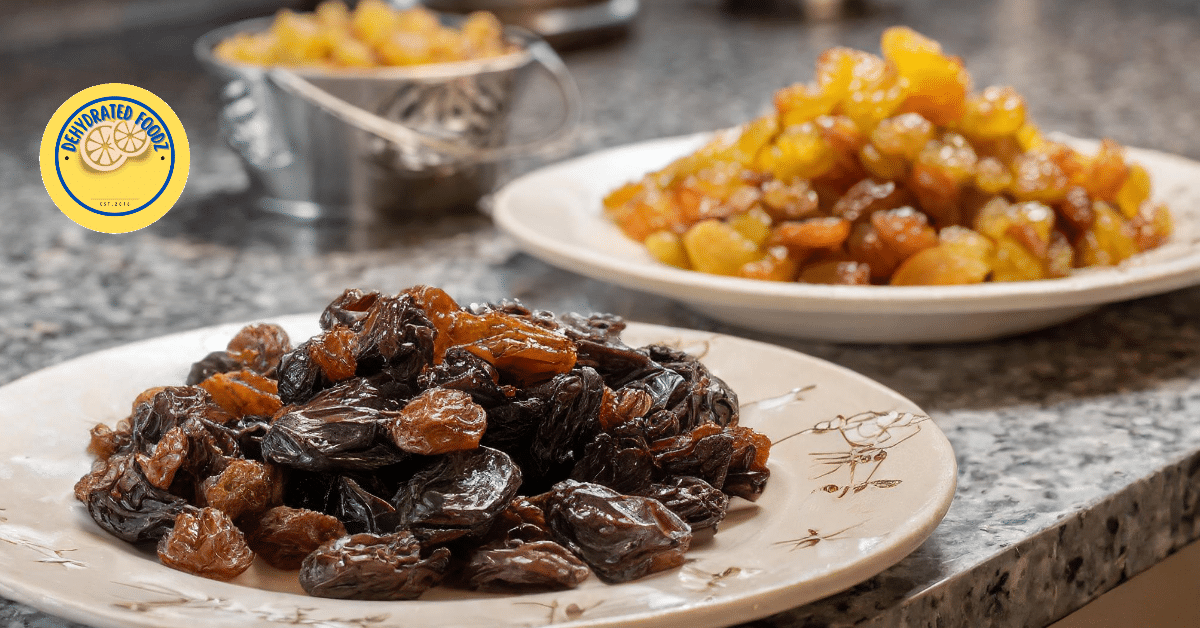When it comes to dried fruit, sultanas and raisins make frequent appearances in our snack drawers, baked goods, and savory dishes. They’re both sweet, chewy, and derived from grapes, but they’re not identical twins. This post will guide you through the sultana vs raisin debate, exploring everything from nutrition to culinary uses. Whether you’re a baking enthusiast or just enjoy snacking on these dried fruits, understanding their differences can enhance your favorite recipes and snack choices.
Introduction to Sultanas and Raisins
Sultanas and raisins both stem from the bountiful grapevine but are made from different varieties of grapes and processed in unique ways. Sultanas generally come from seedless white grapes, typically of the Thompson Seedless variety, and are known for their golden color, soft texture, and sweet, juicy flavor. They’re also often treated with vegetable oil and sometimes with a solution of sulfur dioxide to preserve their light color.
Raisins, on the other hand, are usually made from darker grapes, including the Muscat, Black Corinth, or Zante grape varieties. They are dried naturally in the sun, which gives them their dark brown hue, and tend to have a sweeter and more intense flavor compared to sultanas, with a slightly chewier texture.
Nutritional Comparison
While both of these bite-sized morsels pack similar nutrient profiles, there are nuances worth noting. In a side-by-side comparison, raisins may contain slightly more calories and sugar per serving due to their smaller size and higher concentration of sugars.
However, both sultanas and raisins are good sources of fiber and iron, which are instrumental in a healthy diet, as well as potassium, which is important for muscle function and heart health. The calorie difference is marginal, so unless you are counting every calorie, either choice would be a healthy addition to your diet.
Flavor and Texture
The flavor and texture of sultanas vs raisins can be a deciding factor in many recipes. Sultanas, with their lighter taste, add a delicate sweetness to dishes without overpowering other flavors. They’re also a bit plumper and juicier in texture, which works well in lighter cakes or bread.
Raisins, with their robust sweetness and firmer bite, are ideal for providing a concentrated burst of flavor, perfect for oatmeal cookies or spice cakes where they can stand up to stronger spices and other bold ingredients.
Culinary Uses
Cooks and bakers worldwide have long debated sultanas vs raisins for their culinary creations. Sultanas, with their mild sweetness, pair wonderfully in salads, couscous dishes, and as a topping for cereals. They also integrate well into desserts where a subtle fruit flavor is desired.
Raisins, being more intense and flavorful, are often the star of the show in dishes that require a sweet, dense fruit, like cinnamon raisin bread, trail mixes, or as a hearty oatmeal mix-in. Additionally, savory dishes benefit from the sweetness of raisins, like in tagines or rice pilafs.
Health Benefits
Both sultanas and raisins are considered healthy additions to any diet. They’re commonly recognized for their fiber content, which promotes good digestive health. The antioxidants present in these dried fruits, particularly those compounds known as polyphenols, are beneficial in combating oxidative stress and may reduce the risk of chronic diseases.
Recent studies have also pointed out potential benefits for bone health due to the minerals found in these fruits. Frequent consumption of either can aid in keeping bones strong and durable, thanks to their potassium and boron content, although it’s essential to moderate intake due to their high sugar concentration.
Conclusion
In the sultanas vs raisins showdown, the victor depends on personal preference and culinary context. Both have their rightful place in the kitchen and boast nutritional values that make them a fantastic choice for a healthy snack or recipe ingredient. When you reach for that packet of golden sultanas or dark, rich raisins, rest assured that either will bring a touch of sweetness and a wealth of health benefits to your table.
Remember these tips the next time you’re at the grocery store or about to bake your famous bread, and you’ll be making an informed decision that will reflect beautifully in your cooking and snacking habits. May your choices be sweet and your dishes delightful!

